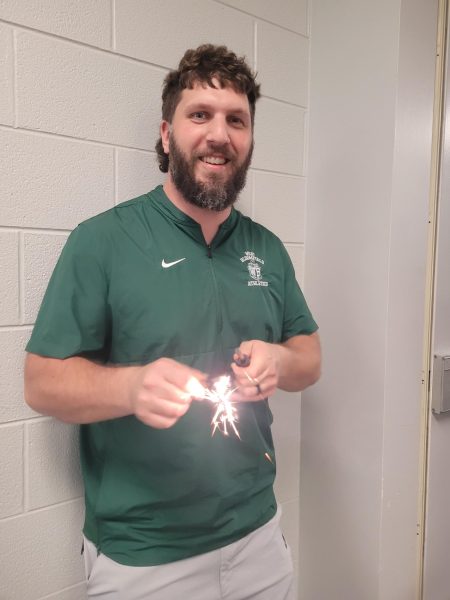The Results of Brock Turner’s Sexual Assault on Anonymous Victim
In the early hours of January 18, 2015, Brock Turner sexually assaulted a now 23 year old woman who has chosen to stay anonymous. While attending a party at the Kappa Alpha Fraternity at Stanford University, the college swimmer from a small town called Oakwood, Ohio, became inebriated and raped an unconscious woman behind a dumpster. Two bicyclists caught him in the act at around 1 a.m. and immediately called police, who arrested him on sight. When the students found him, they say he was thrusting his hips on top of an unconscious and partially nude woman.
Turner, 20, faced three felony charges: assault with intent to commit rape of an intoxicated woman, sexually penetrating an unconscious person with a foreign object, and sexually penetrating an intoxicated person with a foreign object. The maximum sentence that Turner could serve would have been 14 years, however, many people were expecting a six year sentence in state prison. Instead, Turner has been sentenced to serve six months in a county jail due to his lack of a prior criminal record and the fact he seems to show remorse for his actions. On June 2, 2016, over a year after the assault took place, Judge Aaron Persky claimed that Turner’s unblemished history and young age meant that a longer sentence would be too severe. He decided that because of his youth, Turner is still learning from his mistakes and this lesson will stick with him for a long time, regardless of a long or short sentence. Turner is expected to get out in only three months for good behavior but will stay on the Sex Offender Registry for life.
Turner’s assault has caused outrage across the country. Many people have cried that his sentence is simply not long or fair enough, while others point out that a black male who committed the same crime would not have gotten off so easily. Critics find Turner’s sentence even more appalling because he continually lied to police and probation officials and never admitted his crime or apologized to the victim. When asked about his history, Turner told authorities that he was just some confused boy from Ohio, inexperienced in the world of partying, and someone who would never take drugs or do something risky, aggressive, or harmful. He said that when he got to Stanford, he got so lost in the party culture that on the night of the attack, he was extremely intoxicated and has the fraternity and other students to blame. However, witnesses at the scene say that Turner acted relatively fine and was sober enough to talk and run. When police searched his phone, they found evidence of him talking about smoking marijuana and taken hallucinogens such as LSD back in his hometown and when he arrived at Stanford. Another problem with Turner’s innocent boy act is that he has a history of violent and sexually explicit behavior. Just a week before the attack he had been accused of aggressively touching a dancing woman at another Kappa Alpha party. Also, not long after the attack, police found a text message from a fellow swimmer in a GroupMe chat that said ‘Who’s t*** are those?’ indicating that Turner may have actually photographed his victim’s breasts during the attack.
During the week of the trial, many letters were released to the public, including ones from the victim and Turner’s parents. The victim’s letter went viral and stirred up a lot of controversy and upset feelings. People rallied on the victim’s side and called for justice as they read her 7000 passionate words about the flawed court system. Turner’s father on the other hand labeled the assault as ‘20 minutes of action’ and called Turner the real victim because he can no longer eat or enjoy life how he used to. His mother also submitted a letter to the judge that discussed Turner’s depressed moods in the past months and called for a lenient sentence. The letters from Turner’s parents have mostly caused disgust in American citizens. Many people have actively voiced their opinion of the attack on Twitter and other social media websites and apps. Adam Clairmont, 20, who has recently moved from Michigan to Florida and has attended two universities infamous for a large party culture had a lot to say about Turner and his offences. When asked about Turner’s sentence, he said, “It’s ridiculous. This guy raped a girl and only got six months, and he’s supposed to get off in three anyway. And the fact that he blames the ‘party culture’ is stupid. I’ve gone to countless parties throughout my college years and I’ve never thought ‘hmm, tonight seems like a good night to rape someone!’ He needs to take accountability for his actions, admit he raped the girl and that it wasn’t consensual, and apologize. The party culture isn’t wrong. People who think they have the right to hurt others is what’s wrong.”
Now that this rape case has been so widely publicized, many women are coming out and talking about similar events happening to them and how the Turner case impacted how they think about rape on college campuses. Emma, 18, said about her own college experience, “Sexual assault happens everywhere but nobody really wants to talk about it. It’s worse in the frats than anywhere else, but it still happens all across campus. Most of us don’t want to talk about what happens because we’re embarrassed. It’s hard to admit you either got drugged, which makes people think you’re irresponsible because we should be watching our drinks, or that we were too drunk to take care of ourselves because there’s obviously a stigma with that too. People tend to blame the girl, and what’s good about this case is that a lot of people are really holding Brock Turner accountable for his actions, even if he won’t admit what he did. However, when cases like these break out, a lot of people freak out and talk about how we should stop victimizing women and raping them, but men and people all over the gender spectrum are raped too. It’s just a complicated situation, and I want to say we should all be more careful and learn how to stay safe at parties, but really we should be telling people not to rape others rather than teaching girls how not to get raped.”
Overall, this case has been extremely complicated and has caused a lot of controversy. With the acknowledgement of white privilege, many people have turned this case into an issue about race. They say that a person of color would not have enjoyed the luxuries that Turner is now, including a security guard in jail. The case has also brought a lot of additional attention to on campus rape and has set a new, higher standard for how the courts should handle cases like this. On many campuses, people are bullied to keep their rapes and sexual assaults silent and are discouraged from reaching help. Now, a lot of people are aware that there are people and resources to help them out if they ever find themselves in this awful situation.
Your donation will support the student journalists of West Bloomfield High School. Your contribution will allow us to purchase equipment and cover our annual website hosting costs.

Ashley Thoms is currently a junior at West Bloomfield High School. This is her second year on Spectrum. She enjoys writing creative stories and the occasional...












